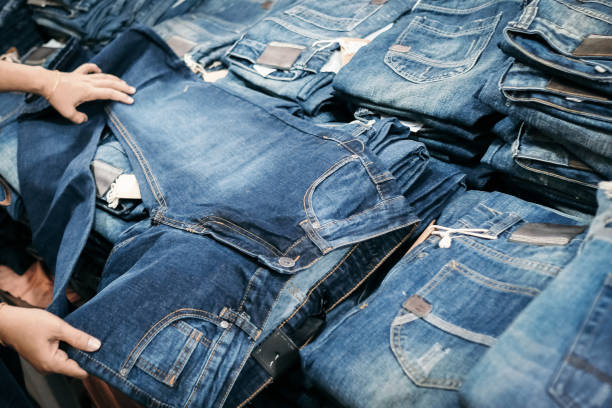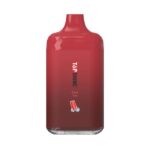In the ever-evolving landscape of the fashion industry, denim jeans suppliers play a crucial role in shaping sustainability practices. As consumers increasingly demand eco-friendly products, the influence of these suppliers extends beyond mere garment production. This article delves into how denim jeans suppliers affect the sustainability of the fashion industry, highlighting their contributions, challenges, and the emerging trends that are reshaping the sector.
Understanding the Role of Denim Jeans Suppliers
Denim jeans suppliers are pivotal in the fashion industry, providing the raw materials and finished products that fuel the global denim market. Their role encompasses various stages, from sourcing high-quality denim fabric to delivering finished jeans to retailers. The sustainability of this process is paramount, as it impacts the entire supply chain, from environmental conservation to ethical labor practices.
The Environmental Footprint of Denim Production
Denim production is notorious for its environmental impact. Denim jeans suppliers must navigate challenges such as water consumption, chemical usage, and waste management. Traditional denim manufacturing processes are resource-intensive, often resulting in significant water and energy consumption. For instance, dyeing denim can consume up to 2,000 gallons of water per pair of jeans. Additionally, the use of synthetic dyes and chemicals poses risks of pollution and health hazards.
To mitigate these impacts, suppliers are adopting more sustainable practices. Innovations in waterless dyeing technologies, eco-friendly chemicals, and waste reduction techniques are gaining traction. By implementing these methods, denim jeans suppliers can significantly reduce their environmental footprint, contributing to the broader goal of sustainability in fashion.
Sustainable Materials and Production Techniques
The shift towards sustainability in denim production involves embracing alternative materials and production techniques. Denim jeans suppliers are increasingly sourcing organic cotton, which reduces the reliance on pesticides and synthetic fertilizers. Additionally, recycled denim, which repurposes old jeans into new fabric, is becoming more popular. This not only conserves resources but also reduces waste.
Furthermore, advancements in production techniques, such as laser technology for distressing and ozone washing, are minimizing water and chemical usage. These methods not only enhance the sustainability of the production process but also improve the quality and durability of the final product.
Ethical Labor Practices in Denim Production
Sustainability in the fashion industry extends beyond environmental considerations to include ethical labor practices. Denim jeans suppliers must ensure fair wages, safe working conditions, and respect for workers’ rights. Unfortunately, the denim industry has faced criticism for labor exploitation and unsafe working environments in the past.
To address these issues, many suppliers are now committed to adhering to international labor standards and implementing social audits. Certifications such as Fair Trade and B Corp are becoming more prevalent, signaling a dedication to ethical practices. By prioritizing worker welfare, denim jeans suppliers can contribute to a more equitable and sustainable industry.
The Role of Transparency and Certification
Transparency is a critical component of sustainability in the denim industry. Consumers are increasingly demanding information about the origins of their clothing and the practices of the suppliers involved. Denim jeans suppliers are responding by providing detailed information about their sourcing, production methods, and labor practices.
Certifications play a significant role in ensuring transparency and accountability. Certifications such as Global Organic Textile Standard (GOTS) and OEKO-TEX Standard 100 help consumers identify products that meet specific sustainability criteria. By obtaining these certifications, denim jeans suppliers can demonstrate their commitment to environmental and social responsibility.
Innovations and Trends Shaping Sustainable Denim
The quest for sustainability in the denim industry is driving innovation and the adoption of new trends. Denim jeans suppliers are at the forefront of these developments, exploring novel approaches to enhance the sustainability of their products.
Circular Fashion and Recycling
Circular fashion is an emerging trend that focuses on creating a closed-loop system for clothing. In this model, products are designed for longevity and recyclability, with the goal of minimizing waste. Denim jeans suppliers are embracing circular fashion by incorporating recycled materials into their products and designing jeans that can be easily disassembled and recycled at the end of their lifecycle.
Technology-Driven Solutions
Technology is playing a crucial role in advancing sustainability in denim production. Innovations such as 3D knitting and digital printing are reducing waste and energy consumption. Additionally, blockchain technology is being explored to enhance traceability and transparency in the supply chain. By leveraging these technologies, denim jeans suppliers can improve the efficiency and sustainability of their operations.
Consumer Awareness and Demand
Consumer awareness and demand for sustainable products are driving change in the denim industry. As consumers become more conscious of the environmental and social impacts of their purchases, they are seeking out brands that prioritize sustainability. Denim jeans suppliers must adapt to these shifting preferences by aligning their practices with consumer values and expectations.
Challenges and Opportunities for Denim Jeans Suppliers
While the push towards sustainability presents numerous opportunities, it also comes with challenges. Denim jeans suppliers must navigate the complexities of integrating sustainable practices into their operations while balancing cost and efficiency.
Balancing Cost and Sustainability
One of the primary challenges is the cost associated with implementing sustainable practices. Eco-friendly materials and technologies often come with a higher price tag, which can impact the overall cost of production. Denim jeans suppliers must find ways to balance these costs with the need to remain competitive in the market.
Supply Chain Coordination
Coordinating sustainability efforts across the supply chain is another challenge. Denim jeans suppliers must work closely with farmers, manufacturers, and retailers to ensure that sustainability practices are upheld at every stage. This requires effective communication and collaboration, which can be complex and time-consuming.
Conclusion
The impact of denim jeans suppliers on the sustainability of the fashion industry is profound and multifaceted. By adopting sustainable practices, embracing innovative technologies, and prioritizing ethical labor practices, these suppliers are playing a crucial role in shaping a more sustainable future for fashion. As consumers continue to demand transparency and responsibility, the commitment of denim jeans suppliers to sustainability will be increasingly vital in driving positive change within the industry.


